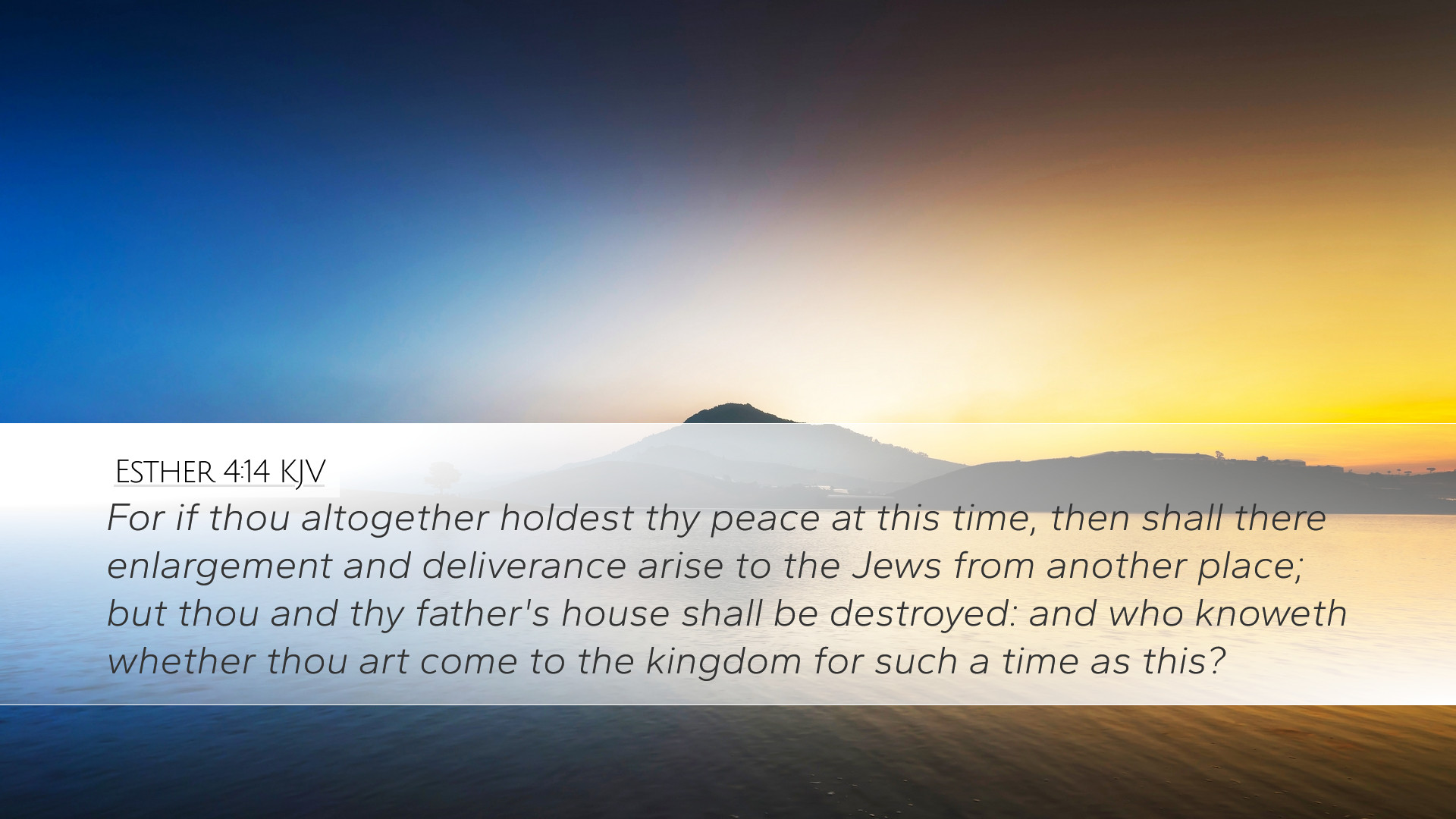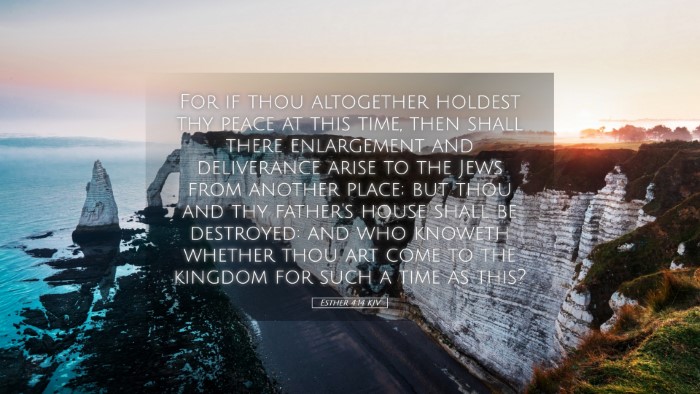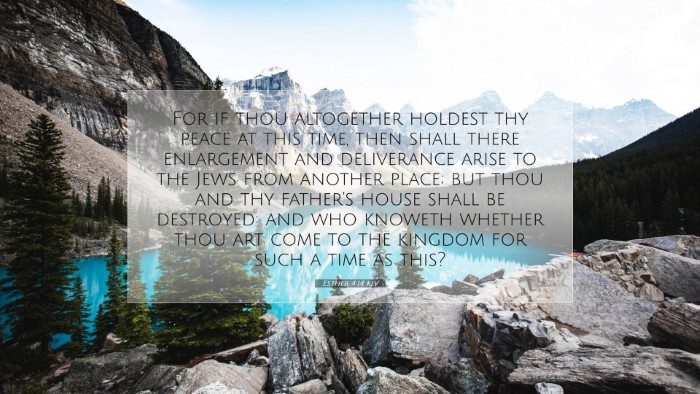Old Testament
Genesis Exodus Leviticus Numbers Deuteronomy Joshua Judges Ruth 1 Samuel 2 Samuel 1 Kings 2 Kings 1 Chronicles 2 Chronicles Ezra Nehemiah Esther Job Psalms Proverbs Ecclesiastes Song of Solomon Isaiah Jeremiah Lamentations Ezekiel Daniel Hosea Joel Amos Obadiah Jonah Micah Nahum Habakkuk Zephaniah Haggai Zechariah MalachiEsther 4:14
Esther 4:14 KJV
For if thou altogether holdest thy peace at this time, then shall there enlargement and deliverance arise to the Jews from another place; but thou and thy father's house shall be destroyed: and who knoweth whether thou art come to the kingdom for such a time as this?
Esther 4:14 Bible Commentary
Commentary on Esther 4:14
Esther 4:14 (ESV): "For if you keep silent at this time, relief and deliverance will rise for the Jews from another place, but you and your father's house will perish. And who knows whether you have not come to the kingdom for such a time as this?"
This profound statement by Mordecai to Esther serves as a pivotal moment in the Book of Esther, highlighting themes of divine providence, human agency, and the importance of spiritual courage.
Divine Providence and Human Agency
Matthew Henry's Commentary: Henry emphasizes that while God is sovereign and can bring deliverance in various ways, He often chooses to work through individuals. Mordecai's words serve to remind Esther that her position is not merely coincidental, but rather a divinely orchestrated opportunity to effect change.
Albert Barnes: Barnes asserts that Mordecai's observation implies that, although God could save His people in other ways, Esther has been placed in her royal position for a distinct purpose. This underscores the idea that our lives and situations are imbued with meaning, and we must seek to fulfill our divinely appointed roles.
The Call to Action
Adam Clarke's Commentary: Clarke points out that Mordecai's challenge is a call to action—an urgent reminder that silence in the face of injustice can have dire consequences. Esther's potential inaction not only threatens her own life, but also endangers her people. Clarke highlights that this urgency reflects the moral responsibility one carries when in a position of influence.
Mordecai's rhetorical question, "who knows whether you have come to the kingdom for such a time as this?" serves as a clarion call to all believers to consider their circumstances and roles in the context of God's overarching plan.
Lessons on Courage and Commitment
The essence of Esther's story resonates deeply within the Christian tradition, especially concerning the themes of courage and sacrifice. Esther, a Jewish woman in a foreign land, is positioned uniquely to intervene on behalf of her people. This moment challenges her to embrace her identity and the risks associated with it.
Importance of Context
Henry's Perspective: Context is critical in understanding Esther's dilemma. She is navigating a treacherous political landscape, and Mordecai’s words call for a response grounded in faith and conviction. Henry suggests that trials often test our faith, pushing us towards decisive action.
The Role of Prayer and Fasting
- Albert Barnes: Before Esther approaches the king, she calls for fasting—signifying the role of prayer and reliance on God amidst crises. This act underscores the belief that spiritual preparation is essential when confronting formidable challenges.
Implications for Modern Believers
This passage is laden with implications for pastors, students, and believers alike, encouraging them to reflect on their unique positions within society. The reminder that God places individuals in specific locations and roles for His purposes invites a deeper exploration of personal vocation and community involvement.
Empowerment to Act
The exhortation to Esther can resonate with modern readers as an encouragement to step into action. Believers are reminded that they may be placed in their circumstances as instruments of God’s will, and thus, they must be vigilant and ready to act when faced with moral dilemmas.
Conclusion
Esther 4:14 holds a mirror to the lives of believers by asking critical questions about purpose, action, and faith. The combined insights from various public domain commentators elucidate the text's multifaceted implications, empowering the reader to embrace their role in the divine narrative.
As we meditate on this scripture, may we also understand the weight of our responsibilities, the urgency of our actions, and the profound truth that God has indeed placed us "for such a time as this."


